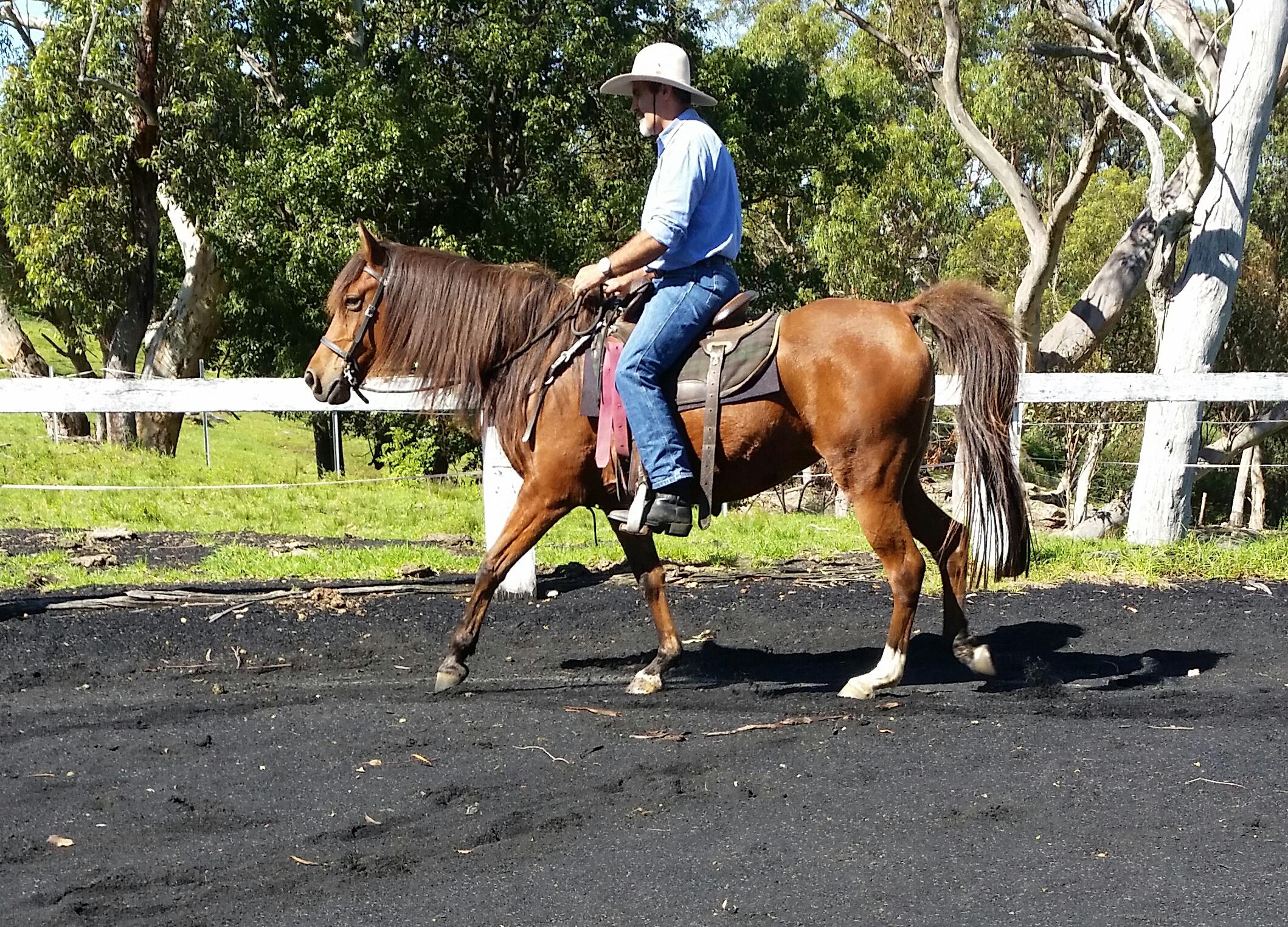
When I lack faith, I become controlling, thinking it’s all up to me to get something done. My hunch is that this is a common experience in all domains of life, and that it is prevalent in our life with horses. The trouble is that as soon as we become controlling, we lose a connection with our horses. If, on the other hand, we have faith, we can let go of this self-centred condition and, rather than trying to make things happen, we can work with feel through a connection with our horse. In short, having faith and trusting in the relation can help us, as Tom Dorrance would say, ‘get ourselves out of the way and let it happen’ (see eg Tom Dorrance, True Unity, 1987 Pp 46-48).
One of the most common symptoms of not having faith is overthinking. One of Tom’s students describes an experience that rings true for me:
If I think too much I can’t get in there at the right time and do what intuitively I know to do, because I am being too intellectual about it. You know like this foot is here, that foot is there, which is all part of it, but if you take that much time thinking sometimes you don’t do it at the right time. … If I don’t think about feet I have a better feel.
… lots of times you get on and you go ‘Oh?’ Gosh, you’re trying real hard but the little voice inside you is saying ‘I don’t know if this is right or not?’ and that gets in your way. … It’s so easy to get bogged down in your own thoughts. (Dorrance Pp 47-48)
For me, overthinking tends to go with anticipating problems, thinking of things that could ‘go wrong’. With one or other of my horses, I might, for example, anticipate that they will push on me while I’m grooming them, or that they will rush through a gate or shy at some new thing in the yard, or that they will run on into a trot-canter transition. In such situations, I’ll be braced, thinking hard about the correct thing to do. Distracted with anticipation, I will no longer be present, and, furthermore, I’ll be holding the thought of this event in my body. Needless to say, my horse will pick up on all of this and is likely to brace herself and lose confidence in my leadership. The trustworthy connection and softness will have been lost, and the very thing that I’m trying to avoid is more than likely to happen.
The feeling of having faith is quite different from this scenario. Here’s how it feels, for example, when I have faith that my horse Pia and I can do a balanced trot-canter transition. Rather than thinking about a potential problem, or where her feet are, or when would be the right time to ask for a transition, I have a sense of quiet, calmness. ‘I’ am absorbed in the movement, feeling the rhythm of the trot in my horse-human body, down to our feet, making adjustments and offering support where it is needed, without any micro-managing. Together, we can do this. Time slows, there is no rush or running on in distraction. Then, the right moment of transition comes; with ease and balance, we, horse-and-human, tip over into a canter rhythm.
Now, of course, things mightn’t unfold like this, but it won’t matter if I am in that calm, having faith state of being. Rather than being judgemental, thinking that something has gone wrong, it’ll be a matter of interest, an opportunity for reflection. ‘In an atmosphere where the horse cannot ‘do wrong’, there is little pressure for the rider to ‘do right’. With the mind unlocked from a right and wrong vice, there is more opportunity to be aware’ (editorial note, Dorrance P 132). With awareness and presence, then, we are better placed to listen to our horse, and to allow ourselves to feel what is called for (see eg Dorrance P 26). If the trot-canter transition hasn’t gone to plan, I’ll pause, reset, breathe, and, with faith, reconnect and have another go.
I’ve been suggesting that having faith is a full-bodied relational experience which involves letting go of that human-centred tendency to prioritise our, ‘human’, thinking and, hence, control of our horses. With faith, we can ‘get out of our heads’, and, trusting in the relation, feel down to our horse-and-human feet. In other words, the embodied experience of having faith involves being grounded, whether we are working on the ground or riding. I’ll return to this theme in the next post.
With thanks to Andrew and Corey